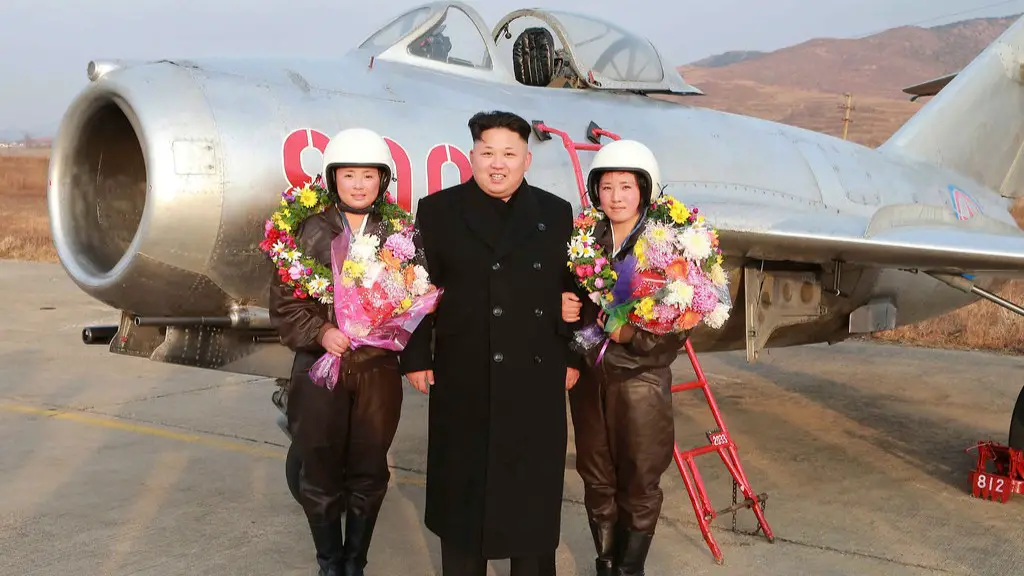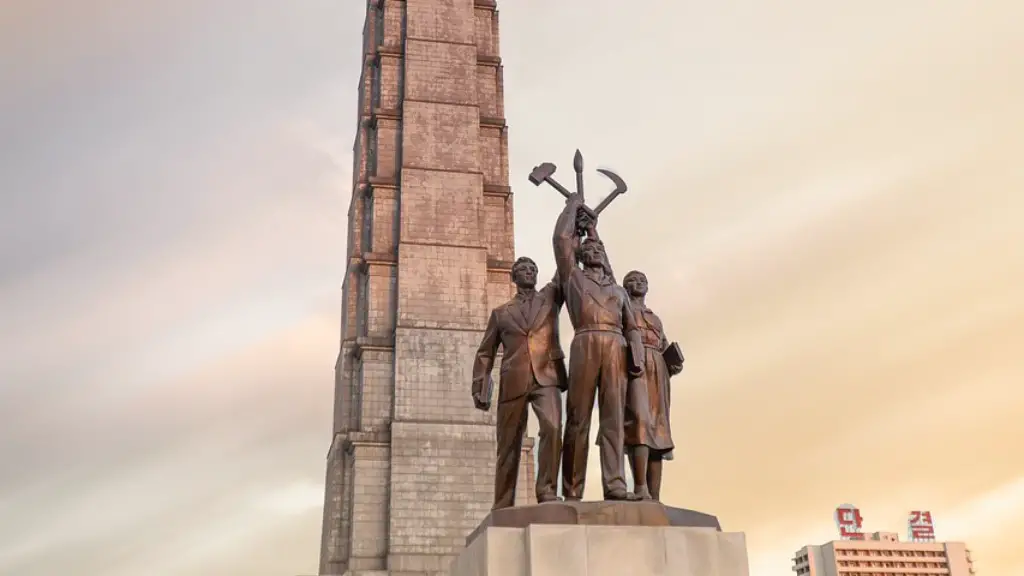Why Do North Korea And South Korea Hate Each Other?
North Korea and South Korea are two countries separated by just one border. Both countries share a common history, language, culture, and ethnicity, yet for the past decades, an intense animosity has been present between the two. But why do North Korea and South Korea hate each other?
The origins of the hostile relationship between the two countries can be traced back to the aftermath of World War II. After Japan’s surrender, Korea was partitioned into two in 1945, with the Soviet Union occupying North Korea and the United States occupying South Korea. Even though the Koreans had hoped for a unified nation, the two countries developed separate political systems. North Korea adopted a communist-style government while South Korea adopted a Western-style democratic republic.
The animosity between the countries further deepened in 1950, when North Korea launched a surprise attack on South Korea, beginning the Korean War. The Korean War ended with an armistice in 1953 and is still technically unresolved, as a formal peace treaty has never been signed. As a result of this conflict, economic sanctions were imposed on North Korea, which led to its economic difficulties and isolation from the world. It also severed the links between people in the two countries and strengthened a mutual distrust between them.
In addition to the historical events, North Korea is believed to be using anti-South Korea propaganda to brainwash its citizens and stoke hatred against South Korea. This is done by spreading false information, such as fabricated stories of South Koreans committing atrocities, and promoting a distorted view of South Korea as an enemy. North Korea is also known to use threats and intimidation against South Korea, such as missile and nuclear tests.
The hostile actions of North Korea have been met with strong responses from South Korea as well. South Korea has implemented numerous economic sanctions against North Korea, as well as military exercises and aircraft patrols in the tense border area. South Korea also engages in psychological warfare tactics, such as blasting anti-North Korean propaganda from loudspeakers aimed over the border.
It is clear that the deep-rooted hostility between North Korea and South Korea is a complicated and long-standing issue with no easy solutions. However, in recent years, various reconciliation efforts have been made, such as diplomatic talks, economic aid programs, and cultural exchange initiatives. This has resulted in some positive results, as both countries have agreed on steps towards reconciliations, such as establishing a joint economic zone and a joint military commission. This shows that there is hope for a better future between North Korea and South Korea.
The Political Relationship Between North Korea And South Korea
The political relationship between the two countries remains tense, as the two governments each hold different political ideologies and have never signed a formal peace treaty. North Korea is led by the authoritarian Kim Jong-un and is closely aligned with China, while South Korea is a democracy led by President Moon Jae-in.
The two Korean governments are locked in a cycle of mutual distrust, and both have accused each other of aggression. This has led to tensions between the two countries and military provocations, such as North Korea’s ongoing missile and nuclear tests, and South Korea’s joint military exercises with the United States.
The two countries have held several high-level meetings in an effort to improve relations, however, these have yielded little progress. For example, the 2018 Inter-Korean Summit in Panmunjom, where South Korean President Moon Jae-in met North Korean leader Kim Jong-un, ended without an agreement.
The most recent lift in the tensions between the two countries has been the 2018 Singapore Summit, when President Trump and Kim Jong-un reached a landmark agreement that would aim to reduce the arms race between the two countries. However, it remains to be seen if this agreement will lead to any long-term benefits for the people of both countries.
The Humanitarian Impact Of The Conflict
The conflict between North Korea and South Korea has had a profound effect on the people of both countries. The economic embargo has led to poverty, malnutrition, and suffering for many North Koreans. The strict restrictions on freedom of movement have also had a negative effect, as many are unable to reunite with their families living in South Korea.
In South Korea, the sociopolitical climate has been greatly affected by the conflict, with many people worried about the war and security in the region. The government of South Korea has placed a heavy emphasis on preparing the public in case of a potential conflict with North Korea, which has resulted in a culture of anxiety and fear.
There have been some attempts to mitigate the effects of the conflict, such as humanitarian aid programs, family reunions, and cultural exchanges. But due to the hostilities between the two countries, such humanitarian efforts remain largely inadequate.
The Potential Future Relationship Between North Korea and South Korea
Although the future of the Korean peninsula is uncertain, there is hope that relations between North Korea and South Korea may improve in the future. The warm handshake between Kim Jong-un and Moon Jae-in at the 2018 Inter-Korean Summit was highly symbolic and has raised optimism of a possible reconciliation between the two countries.
Both countries have since indicated a willingness to cooperate, including deferring their military activities along the border and encouraging economic assistance. There are also plans to re-establish a direct communication line between the two countries and even to link the two countries’ railway systems.
However, any progress towards unification is likely to be slow, as North Korea and South Korea will have to overcome their longstanding distrust and hostility. There is also the issue of the nuclear weapons program of North Korea, which is a major obstacle to any peace agreement. Therefore, it is clear that any potential reconciliation between the two countries is a long process that will require a great deal of commitment and cooperation.
The International Community’s Role In Further Strengthening Relationships
The international community has an important role to play in helping to improve relations between North Korea and South Korea. Many countries have proposed measures to reduce the tensions between the two countries, such as economic assistance, diplomatic relations, and military de-escalation. The United Nations has also been involved in various initiatives aimed at easing the conflict, such as a resolution requiring North Korea to end its nuclear weapons program.
The United States has had a long-standing relationship with South Korea, and the two countries have signed numerous treaties and agreements. The two countries have recently strengthened ties even further, as President Trump met with North Korean leader Kim Jong-un in 2019. The US has also indicated its willingness to lift economic sanctions on North Korea, provided that it complies with international commitments to prohibit its nuclear activities.
China is also playing a key role in mediating the tensions between North Korea and South Korea. In 2018, Chinese Premier Xi Jinping met with North Korean leader Kim Jong-un and South Korean President Moon Jae-in to discuss the issue. China is committed to promoting the peace process, and recently put forward a four-step plan to ease tensions and promote dialogue between the two countries.
Conclusion Of Hopeful Future
The long-running animosity between North Korea and South Korea has had a devastating impact on the people of both countries. However, there is hope that the hostile relations between the two countries can be overcome with the help of the international community. With the right level of commitment and cooperation, a future of peace and unity between North Korea and South Korea could be within reach.





